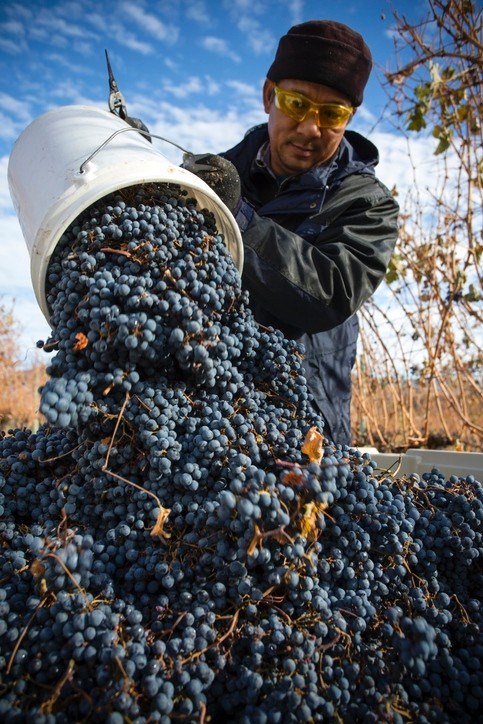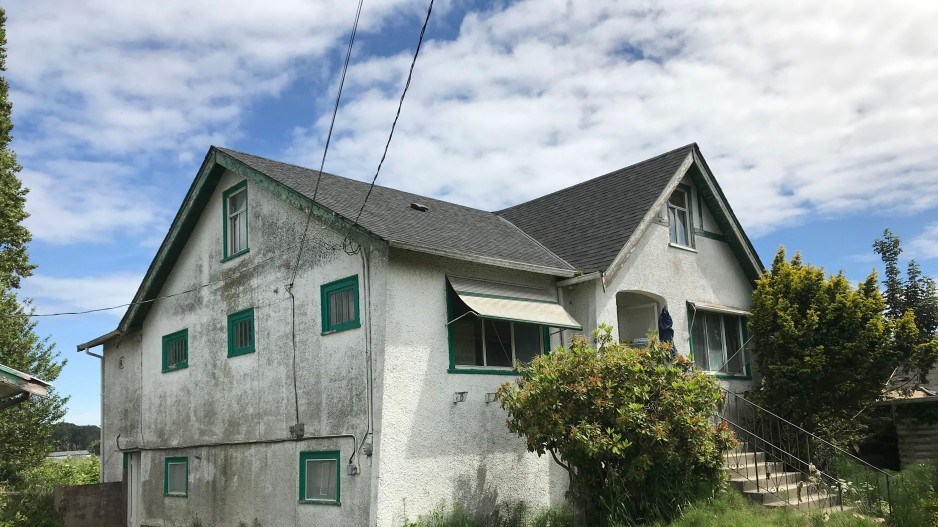Mexico’s top diplomat in British Columbia is calling on the provincial and federal governments to improve oversight of the province’s farms after revelations that 27 foreign temporary workers have tested positive for COVID-19 upon arrival.
The bilateral program, known as Seasonal Agricultural Worker Program (SAWP), brings thousands of temporary foreign workers to Canada every year in a migration Prime Minister Justin Trudeau recently described as “essential work as part of our food chain.”
But after hundreds of workers have fallen ill with COVID-19 across Canada, the systemic problems of the bilateral program have been brought to the forefront and now is the time to follow through on an overhaul, according to Berenice Diaz Ceballos, the Mexican government’s consul general in Vancouver.
So far this year, 4,348 workers have come to B.C. from Mexico, and the consulate expects that number to climb to 6,000 by season’s end. That’s roughly on par with 2019 and represents the largest single nationality of temporary foreign agricultural workers in the province.
Of the roughly 550 B.C. farms with Mexican migrant workers, Diaz Ceballos said she has visited more than 350 of them and has spoken to over 5,000 workers over the last four years.
“Forty per cent have substandard housing,” said Diaz Ceballos. “It's horrible. We have found farms where the conditions are deplorable. It's not human to have a person living there.”
Diaz Ceballos described housing facilities covered in trash, infested with cockroaches and with no mattresses for the workers to sleep on. In some cases, farmers have installed padlocks on the outside of a bunk house’s only exit, effectively trapping workers inside.
“If there's an emergency, there's a fire, they will be dead immediately,” she said.
While communication between the consulate, branches of government and grassroots advocacy groups has improved, there’s still a long way to go, according to Byron Cruz, who in the past has helped launch mobile clinics for migrant farm workers and has successfully lobbied government to give asylum seekers access to health care while awaiting their hearing.
He says the complexity of the temporary foreign worker program makes it hard to know who is responsible for what. As a result, oversight, sanctions and enforcement against non-compliant employers suffer.
“If it’s something regarding working conditions, it’s workers compensation,” he said. “But if it’s housing, they say, ‘No. I wash my hands. This is not my area.’”
Now part of the collective NGO Sanctuary Health, Cruz has been in regular contact with migrant workers from the Lower Mainland to the Okanagan, sending them information on a daily basis since the pandemic broke out. But just like everyone else in the province, those conversations have moved fully online, and inspections have followed suit.
“All this month, inspections were done virtually. What can you do with that?” he said.
However, according to a spokesperson from the Ministry of Agricultural, government employees have physically visited 485 farms across B.C. to ensure they are complying with regulations throughout the pandemic. The province has taken several steps to safeguard migrant workers since COVID-19 hit the province, including guidance to employers to, for example, organize their workers into "work pods" akin to a family unit, and have encouraged anyone who witnesses potential cases of abuse to report the incident to Integrity Services Canada.
Even before the pandemic, migrant workers often came to B.C. desperate to earn enough money to support their families back home.
As temporary workers, the Mexican consulate and many frontline non-governmental organizations have reported how workers have been repeatedly silenced in the face of threats from farmers.
And while there are both “good and bad” actors across B.C.’s farming sector, Diaz Ceballos said there are not enough safeguards in place so that workers feel safe to speak up.
“We're working towards that. We've received complaints that [farmers] have threatened workers that if they don't work, they'll deport them,” she said. “They are obviously afraid.”
The consul general also outlined systemic bullying and harassment against workers, and problems with farmers not paying wages on time or in full.
"It's deplorable," she added in Spanish. “We are advocating that our workers have the same rights as other workers here in Canada.”
Not just a B.C. problem
B.C. is not the only province grappling with the treatment of migrant workers. In Ontario, hundreds have fallen ill across 17 farms and at least three have died as a result of COVID-19.
As the number of the outbreaks grew, the Mexican government stopped the foreign agricultural worker program in its tracks, pausing it for several days last week as it assessed the situation.
Last week, in a letter to Mexico’s ambassador to Canada Juan José Gómez Camacho, Liberal MP Carla Qualtrough — who’s responsible for employment, workforce development and disability inclusion — outlined the creation of an interim, cross-department “contact group” to “safeguard the health and safety of foreign nationals working in our agricultural sector.”
Other measures announced in the letter include having Service Canada inspectors work with national and local health authorities on farms where outbreaks have occurred; bolstering inspections in the event of an outbreak; and further educating employers around their responsibilities to workers in the midst of a pandemic.
Any employers not complying with these rules will be strictly sanctioned, reads the letter.
And as for the Mexican government, it’s conducting its own internal review of the program, according to Diaz Ceballos.
But for grassroots groups in regular contact with migrant workers, just how such inspections, sanctions and enforcement will play out is far from clear.
Long way to go
Like Diaz Caballo, Cruz gives credit to the B.C. government for proactively quarantining migrant workers for 14 days in hotels upon their arrival. The problem, he said, is when they arrive at the farms and are moved into bunkhouses where 18 workers share three bedrooms and everyone is transported together in mini-vans.
“I’m afraid that as soon as we start moving into phase 3, eventually the farm workers will be hit again in B.C.,” he said, pointing to the increased risk of community spread as British Columbians increasingly travel to rural destinations around the province.
“The different government institutions and consulates are not prepared for that second wave because there’s still very weak coordination.”

A migrant worker harvests grapes at a farm in British Columbia's Okanagan region. Much of Canada's agricultural industry relies on imported labour from countries like Mexico and Jamaica. - Getty
It’s not just migrant workers in the government-run SAWP program that advocates like Cruz are worried about; thousands more foreign agricultural workers are brought to B.C. in schemes worked out directly between private agencies and farmers. And the tendency, said Cruz, is for farmers to opt for this arrangement, known as the Agricultural Stream, as it comes with even less scrutiny than the SAWP program.
In Delta and Ladner, for example, Cruz said roughly 90% of foreign agricultural workers — most from Guatemala — are locked into one of these private, up to 24-month arrangements, and foreign diplomatic corps have little to no access.
“We are basically the consulate of Guatemala,” said Cruz.
Still, both Cruz and Mexico’s consul general said this moment has come as a reckoning in which many of the historical problems surrounding migrant agricultural workers have become at once worse and public.
“We don't know if [COVID-19] will last for this season, or the next season or the next one,” said Diaz Caballos.
“But we don't need to have another kind of pandemic to act and to recognize the human rights of workers.”




